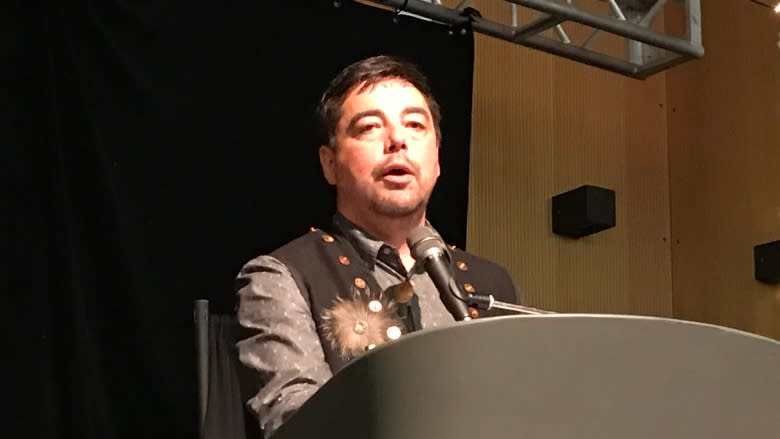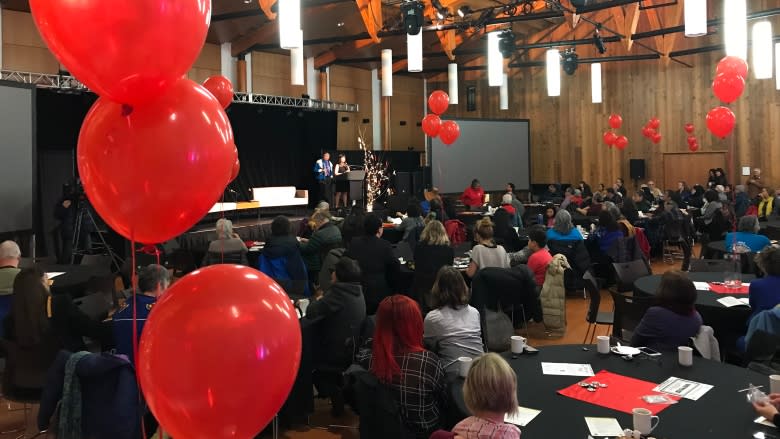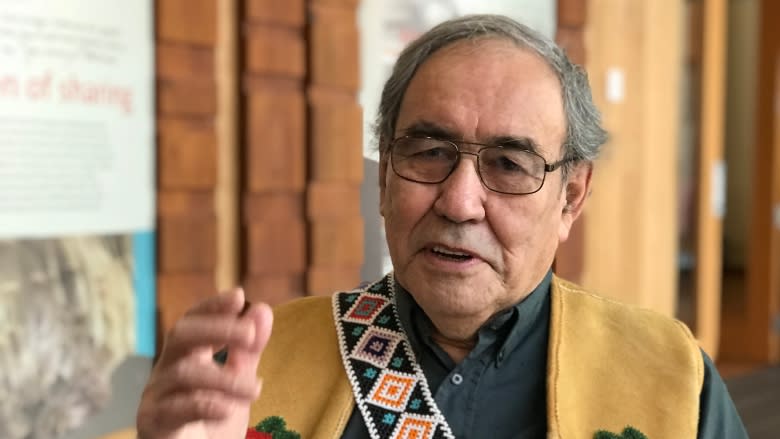Yukon First Nations mark 45 years since historic trip to Ottawa
For Peter Johnston, grand chief of the Council of Yukon First Nations, it's personal as well as political.
Forty-five years ago this month, Johnston's father — Chief Sam Johnston — went with the Yukon Native Brotherhood to Ottawa to meet with Prime Minister Pierre Trudeau. The group made history by managing to convince the federal government to negotiate a modern day treaty.
That eventually led to the signing of Yukon's Umbrella Final Agreement — a watershed moment for Indigenous rights in Yukon and Canada.
"I celebrate it everyday, as his son," Peter Johnston said. "We've already had a generation of kids that have grown up in self-government reality."
Johnston and other First Nations leaders marked the 45th anniversary of that historic Ottawa meeting earlier this week, with a celebration in Whitehorse.
"We are so much further ahead, in regards to not only the advancement of our rights and the protection of our rights — we also have jurisdiction, we have an ability to somewhat create a future for our people," Johnston said.
"We could definitely be a model for the rest of Canada."
'We will not sell our heritage for a quick buck'
The Yukon leaders went to Ottawa in 1973 led by Chief Elijah Smith and wielding a document titled Together Today for our Children Tomorrow. It was to serve as a position paper, on which to base future land claim negotiations.
"The objective of the Yukon Indian people is to obtain a settlement in place of a treaty that will help us and our children learn to live in a changing world," the booklet reads.
"We want to take part in the development of the Yukon and Canada, not stop it. But we can only participate as Indians. We will not sell our heritage for a quick buck or a temporary job."
When Smith spoke in Ottawa, he was equally succinct. He described how more and more "white men" were moving to Yukon, staking mineral claims, and threatening to displace First Nations people from their traditional territory.
"We're here to talk about our future. The only way we feel we can have a future is to settle our land claims," he said. "The Yukon Indian people are offering the government of Canada, the people of Canada, a plan for our future."
Paul Birckel, the former chief of the Champagne and Aishihik First Nations, remembers that time well — both the days leading up to the Ottawa trip, and the negotiations that would soon follow.
"It seems like it was yesterday," he said.
"We had books, and we had buttons … and we sent the people around to all the communities talking about this book [Together Today for our Children Tomorrow], and spent about two years doing those kind of things.
"I don't think people knew what self-government was, because Indian Affairs said they had the job of looking after us, and taking us to school."
Yukon First Nations trailblazers for Indigenous rights
Judy Gingell, the founding director of the Yukon Native Brotherhood, was in the group that went to Ottawa in 1973. She says there was a lot of optimism, but says they had no inkling that the actual negotiations would take years.
"Dave Joe was our chief negotiator at the time," she recently recalled. "When the Prime Minister asked him how long this is going to take, I remember Dave Joe very clearly saying, 'six months.'"
It was two decades before the UFA was finally signed — although, to this day, three Yukon First Nations have not signed final land claim and self-government agreements.
Nevertheless, Gingell maintains that Yukon First Nations were a trailblazers for Indigenous rights in Canada.
"It's really entirely up to the First Nations across Canada to invite us from the North to go and be able to speak to them about our agreements," she said.
Peter Johnston agrees that the 1973 meeting in Ottawa was a turning point, and it was important this week to "reflect on the journey that was taken" since then.
"We have a lot to be thankful for, a lot to celebrate, and even though our future is looking brighter, there's still a lot of hard work to do," said Johnston.




